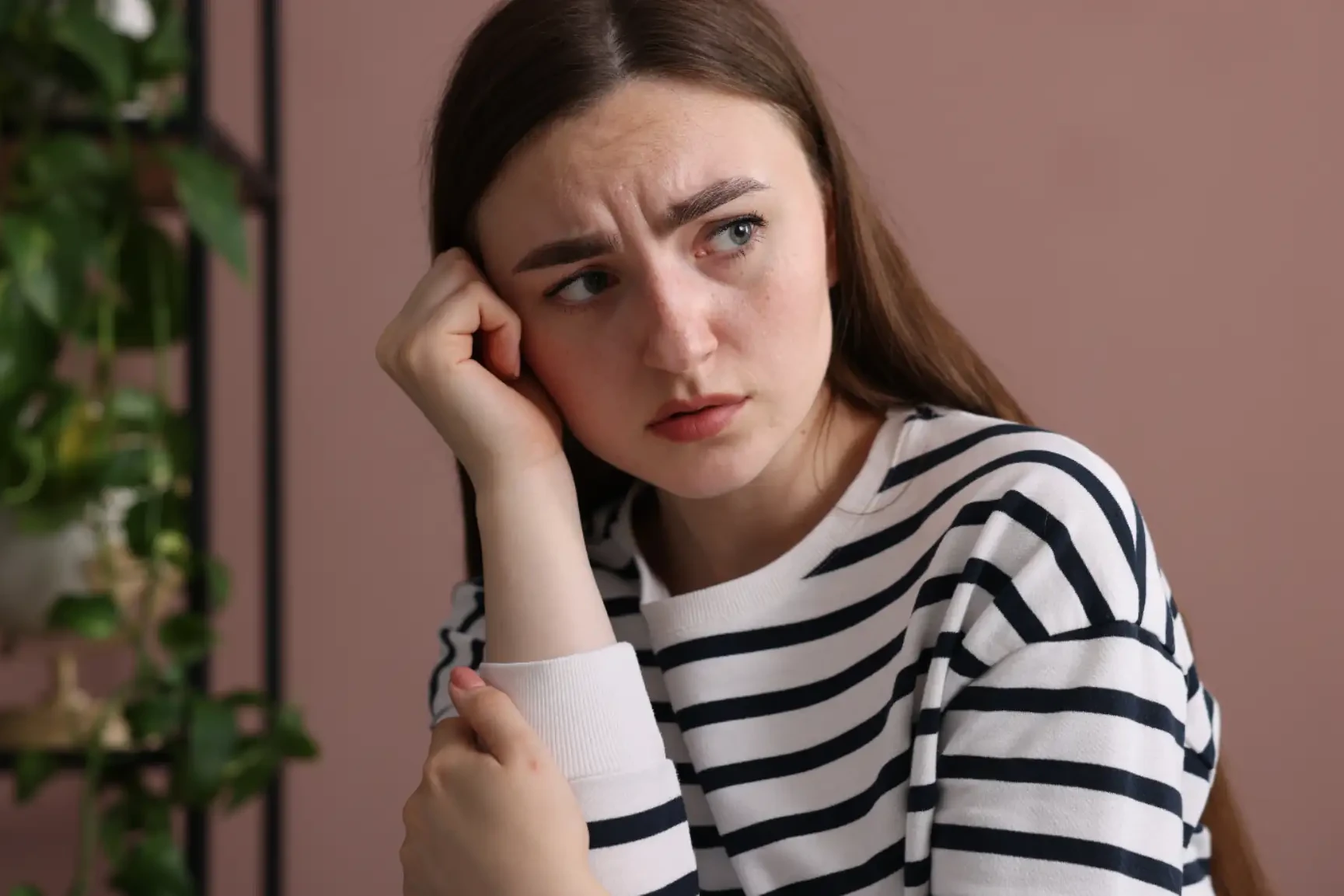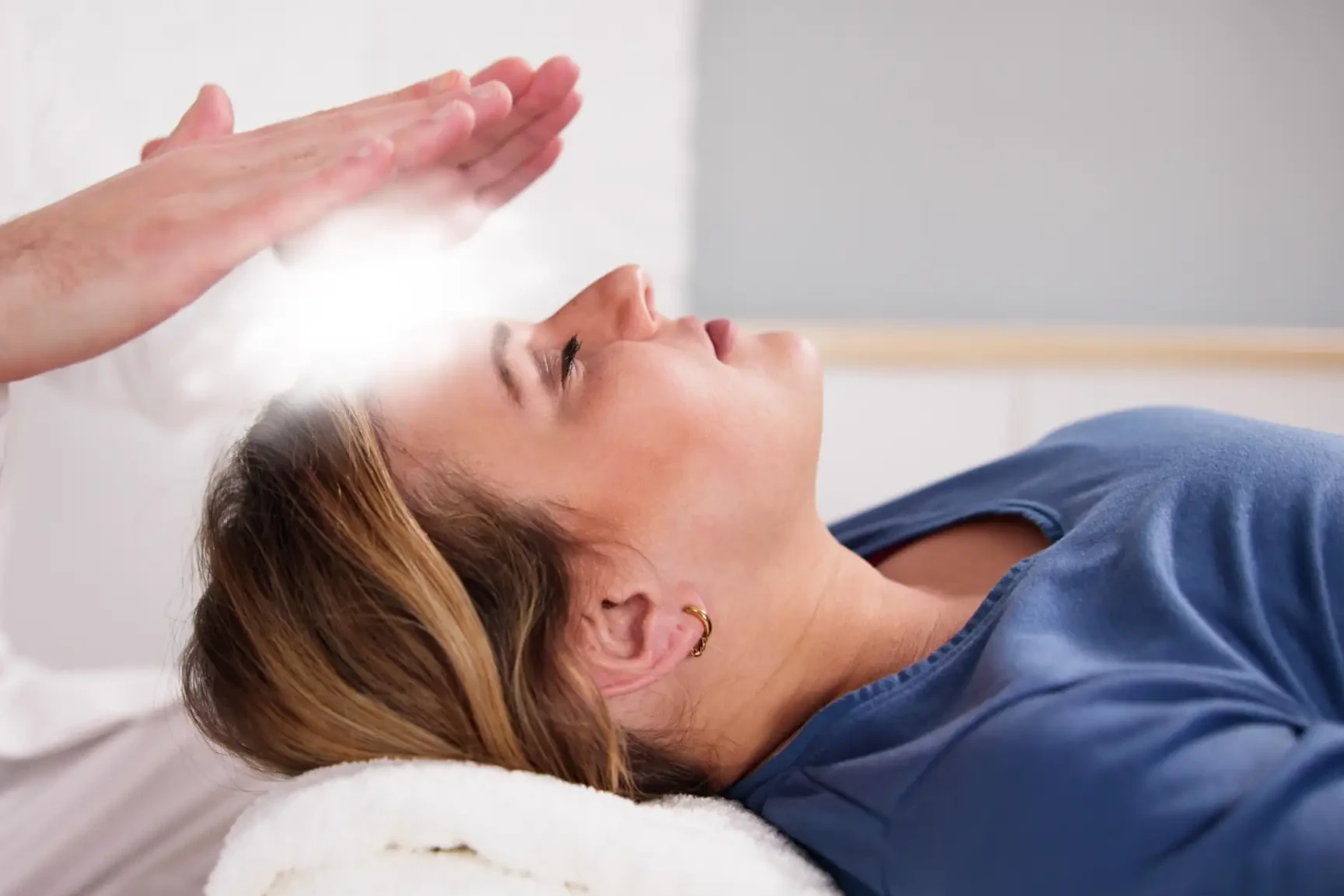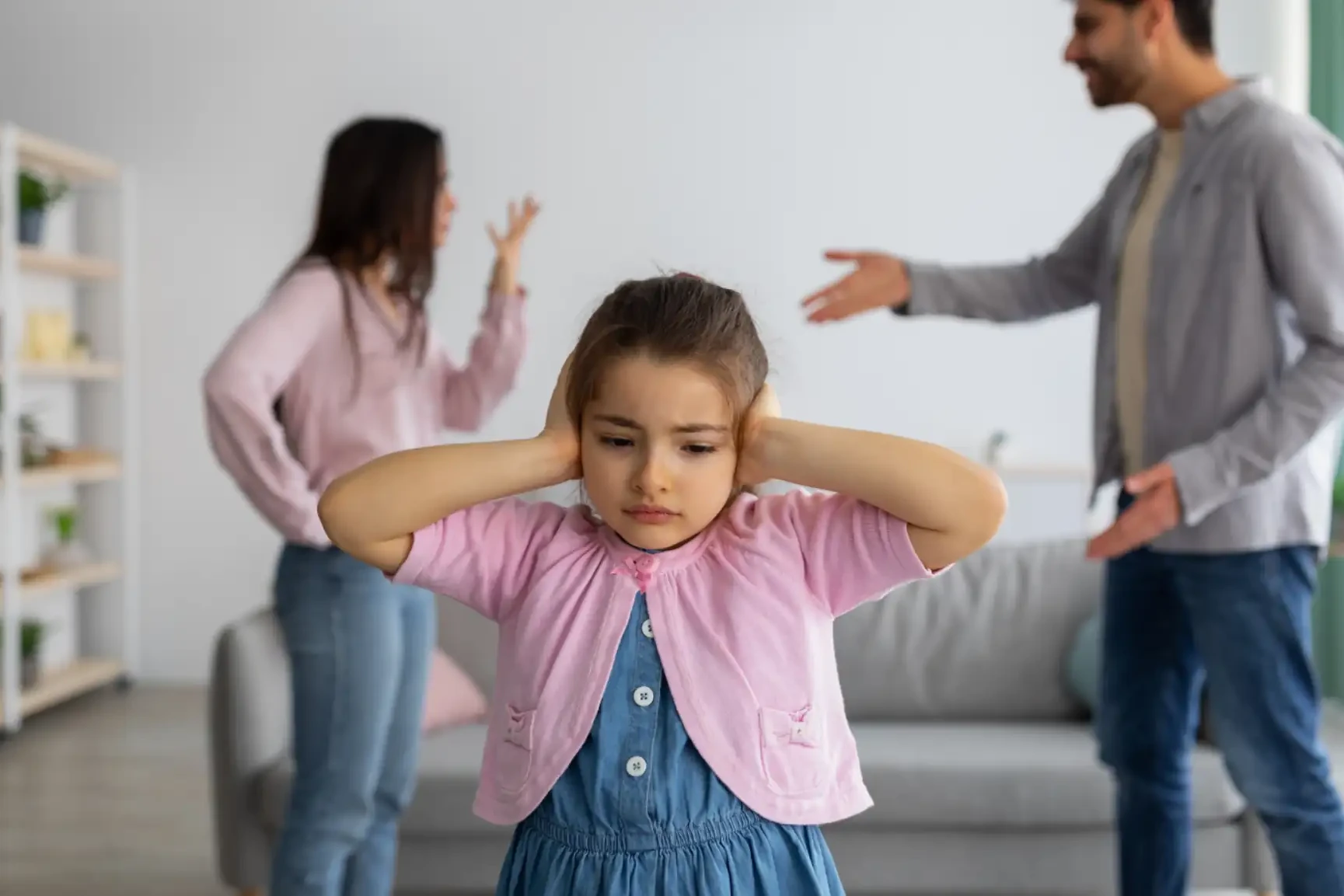Have you ever wondered why more women seem to struggle with sadness, anxiety, or stress? What’s really going on under the surface?
In this blog, statistics on women’s mental health shine a clear light on trends that matter, especially for mothers, sisters, daughters, and friends.
In this blog, we will explore real numbers and stories so you can see why these statistics on women’s mental health need our full attention.
Table of Contents
ToggleThe Prevalence of Mental Health Issues among Women
Women’s mental health statistics show a concerning trend. Women often face higher rates of mental health issues than men. This calls for more awareness and support for women’s mental health challenges.
Anxiety and Depression Rates
Women are twice as likely to get anxiety as men. Also, one in five women has a mental disorder, while one in eight men do. This shows women are more affected by mental health problems.
Common Mental Disorders in Young Women
Young women face a high risk of mental health issues. Over a quarter (26%) of young women aged 16-24 have a mental health problem. This is almost three times the rate for young men.
Young women are the most at risk for mental illness. 25.7% have self-harmed, more than twice the rate for young men. These numbers highlight the need to focus on mental health support for young women.
Age-Based Breakdown of Mental Health Challenges in Women
| Age Group | Key Mental Health Concerns | Notable Statistics |
| Teens (12–17) | Depression, self-harm, anxiety | 26% with common disorders; 25.7% report self-harm |
| 30s–40s | Burnout, work-family stress, anxiety | Peak anxiety, high chronic stress |
| Elderly (60+) | Isolation, dementia, depression | Higher years lived with mental disability |
How does Violence and Abuse Impact on Women’s Mental Health
Women’s well-being is closely linked to their experiences of violence and abuse. Sadly, studies show a strong connection between their mental health and the traumas they go through.
Abuse and Mental Health Problems
Over half (53%) of women with mental health issues have also faced abuse. This shows how violence deeply affects a woman’s mental and emotional health.
Trauma, PTSD, and Self-Harm
Abuse’s impact goes even deeper. Almost three-quarters (78%) of women who faced severe physical and sexual violence have had life-threatening trauma. About 16% have PTSD. Sadly, over a third (36%) have tried to take their own lives, and a fifth (22%) have harmed themselves.
The connection between women’s mental health and abuse is clear. We must address this issue and support survivors fully. This is key to empowering women and improving their well-being.
Barriers to Mental Health Support in Women
| Barrier Type | Key Statistics and Issues | Source |
| Stigma and Cultural Norms | Lower treatment usage among minority women | KFF, CDC |
| Financial / Geographic Access | Poor access in rural and lower-income areas | UN Women |
| Therapy and Medication Gaps | Hispanic women least likely to continue treatment | SAMHSA, MHA |

Mental Health and Poverty: The Connection for Women
Poverty has a big effect on women’s mental health. Studies show a strong link between women’s mental health and poverty. Women in poverty often face mental health issues, with 29% reporting disorders. This is compared to 16% of women who are not poor.
For women in poverty who have been abused, the situation gets worse. They are more likely to have poor mental health. This shows how poverty, abuse, and mental health are linked.
Helping women in poverty with their mental health is key. It helps them live better lives, keep healthy relationships, and join in community activities. By tackling this issue with strong, evidence-based plans, we can help women beat their challenges and improve their mental health.
Read: Best Vitamin Supplements for Women: Essential Nutrients for Optimal Health
COVID-19 Impact on Women’s Mental Health
| Factor | Impact | Source |
| New Cases of Anxiety (2020) | 52 million additional globally | WHO COVID-19 Impact Report |
| New Cases of Depression (2020) | 35 million additional globally | WHO COVID-19 Impact Report |
| Job Loss in Early Pandemic (US) | 11.5 million women vs 9 million men | McKinsey |
| Emotional Distress in Lockdown | 27% of women vs 10% of men reported serious distress | Pew Research Center |
Statistics on women’s mental health: Disparities Among Minority Groups
Women from different backgrounds face mental health challenges, but some groups have it harder. Black, Asian, and minority ethnic (BAME) women in the U.S. deal with extra barriers. These can really affect their mental health.
Mental Health Challenges for Minority Women
Research shows BAME women often face big mental health issues. For example, 29% of Black women, 24% of Asian women, and 29% of mixed-race women have a common mental disorder. This is more than White British women (21%) and White other women (16%). These numbers show the special mental health struggles minority women go through.
- Racism and Stigma: BAME women often face more racism, discrimination, and social stigma. This can lead to more stress, anxiety, and depression.
- Socioeconomic Factors: Minority women are more likely to be poor and have less access to healthcare. These issues can hurt their mental health.
- Cultural Barriers: Some cultural beliefs in minority communities might make talking about mental health taboo. This makes it harder for women to get help and support.
We need a complete, community-focused plan to tackle these mental health issues. We must work to remove barriers and offer care that fits the culture of minority women. This way, we can help all women focus on their mental health and get the support they deserve.
Top Causes of Mental Illness in Women
| Cause | Impact and Findings | Source |
| Domestic Violence | 53% of mentally ill women experienced abuse | National Domestic Violence Hotline |
| Trauma and PTSD | 2x more likely PTSD rates in women | APA Trauma Research |
| Eating Disorders | Co-occur with anxiety/depression in 80% of cases | NIH |
Reproductive and Maternal Mental Health Concerns
Women go through many stages in their reproductive lives. Each stage brings its own mental health challenges. These issues, like premenstrual disorders, infertility, and postpartum depression, need our focus and understanding.
Premenstrual Dysphoric Disorder (PMDD)
About one in 20 women deal with Premenstrual Dysphoric Disorder (PMDD). It’s a severe form of PMS that can really get in the way of life. PMDD brings on mood swings, irritability, anxiety, and depression before a woman’s period.
Infertility, Baby Loss, and Postnatal Depression
Trying to become a mom can be tough on mental health. Infertility and losing a baby can make people feel hopeless and sad. Postpartum depression hits more than one in ten women in the first year after having a baby. It can make it hard to bond with the baby and connect with others.
It’s important to tackle these reproductive and maternal mental health issues. We need to support women during these important times in their lives.
Read: Breastfeeding and Postpartum Depression: What You Should Know | Dr. Chandril Chugh
Recognizing Women’s Strength and Resilience
Women face big challenges, but we must see their strength and resilience. Inspirational women like former First Lady Michelle Obama share wisdom on beating adversity. She said, “There is no limit to what we, as women, can accomplish.” This message of empowerment helps women deal with mental health issues and reach their goals.
Women show great resilience by adapting and thriving despite challenges. A study by the Female Quotient and Cisco found many working women feel resilient in their jobs and personal lives. Women in top positions and over 45 feel especially resilient.
Being resilient is key to feeling happy at work and taking care of oneself. Women who focus on their mental health are more resilient. Creating a supportive work culture helps women’s mental health and lets them shine.

Leaders are vital in making a supportive work place. Companies should focus on empathy, teamwork, and supporting workers. By valuing women’s strength and resilience, we can build a fair and empowering future for everyone.
Addressing the Stigma and Barriers to Care
It’s important to reduce stigma in women’s mental health to help them get the support they need. Women often face barriers like societal biases and a lack of affordable, culturally-competent services. By spreading awareness and encouraging open talks, we can fight the shame and misunderstandings that stop women from caring for their mental health.
Improving Access to Mental Health Support
Women need access to mental health support that understands their needs. This means more telehealth options, more female providers, and mental health screenings during regular doctor visits. Consulting with experienced neurologists like Dr. Chandril Chugh can also help spot and treat mental health issues linked to neurological conditions.
To really help women get the mental health support they need, we must tackle the big barriers that have stopped them from focusing on their well-being. By working together to lessen stigma and make trauma-informed, culturally-responsive services more available, we can help women take control of their mental health and get the support they deserve.
- Increase awareness and understanding around the severity of mental health challenges women face
- Invest in specialized, trauma-informed mental health services for women
- Provide more accessible and gender-sensitive support options
- Integrate mental health screenings into routine medical visits
- Consult with experienced neurologists to address underlying neurological conditions
Conclusion: Empowering Women’s Mental Well-being
Women’s mental health is a big concern, and we need to act. We must support and empower women for their well-being. By tackling mental health issues, addressing violence, and focusing on women’s unique challenges, we can make things better.
We need to break down the stigma around mental health and make support services more accessible. Women should feel safe to get the help they need without facing judgment or obstacles. With teamwork and a comprehensive approach, we can improve women’s mental health solutions and make strategies for improving women’s mental health work.
Putting the mental health of women first helps them and our communities too. Let’s celebrate and support women’s mental health. Together, we can build a future where mental health is valued by all.
FAQ
How prevalent are mental health issues among women?
Women are twice as likely to have anxiety as men. One in five women have a mental disorder, compared to one in eight men. Young women aged 16–24 show that over a quarter have a common mental health problem.
What is the connection between women’s experiences of violence and abuse and their mental health?
53% of women with mental health issues have also faced abuse. Most women who have been physically and sexually abused have gone through trauma. This trauma can lead to PTSD in 16% of them.
Over a third of these women have tried to take their own life. A fifth have self-harmed.
How does poverty impact women’s mental health?
Women living in poverty often have poor mental health. 29% of these women have a common mental disorder, compared to 16% of those who are not poor. Abuse adds to the mental health struggles of poor women.
What mental health challenges do minority women face?
Minority women face racism and stigma, making their mental health harder. Black, Asian, and Minority Ethnic women are more likely to have mental disorders. For example, 29% of Black women and 24% of Asian women have these disorders.
What are some of the unique reproductive and maternal mental health concerns women face?
About one in 20 women suffer from Premenstrual Dysphoric Disorder (PMDD), a severe PMS. Infertility and losing a baby can deeply affect mental health. Over 10% of women feel hopeless and grieve in the first year after having a baby.
Source Links
About The Author

This article is medically reviewed by Dr. Chandril Chugh, Board-Certified Neurologist, providing expert insights and reliable health information.
Dr. Chandril Chugh is a U.S.-trained neurologist with over a decade of experience. Known for his compassionate care, he specializes in treating neurological conditions such as migraines, epilepsy, and Parkinson’s disease. Dr. Chugh is highly regarded for his patient-centered approach and dedication to providing personalized care.
→ Book a consultation to discover which remedies suit your needs best.




